Benedict Cumberbatch Wants Your Sons To Be Feminists, Responds To Sam Elliott’s Criticism Of ‘The Power Of The Dog’
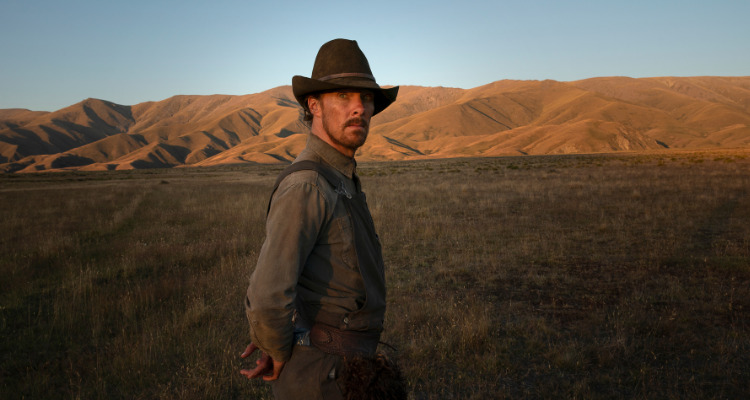
Doctor Strange actor Benedict Cumberbatch recently claimed he wants to turn your sons in to feminists while also responding to Sam Elliott’s criticism of The Power of the Dog. Elliot took issue with the film’s “allusions to homosexuality,” its portrayal of cowboys, and the way it depicts the American Myth.
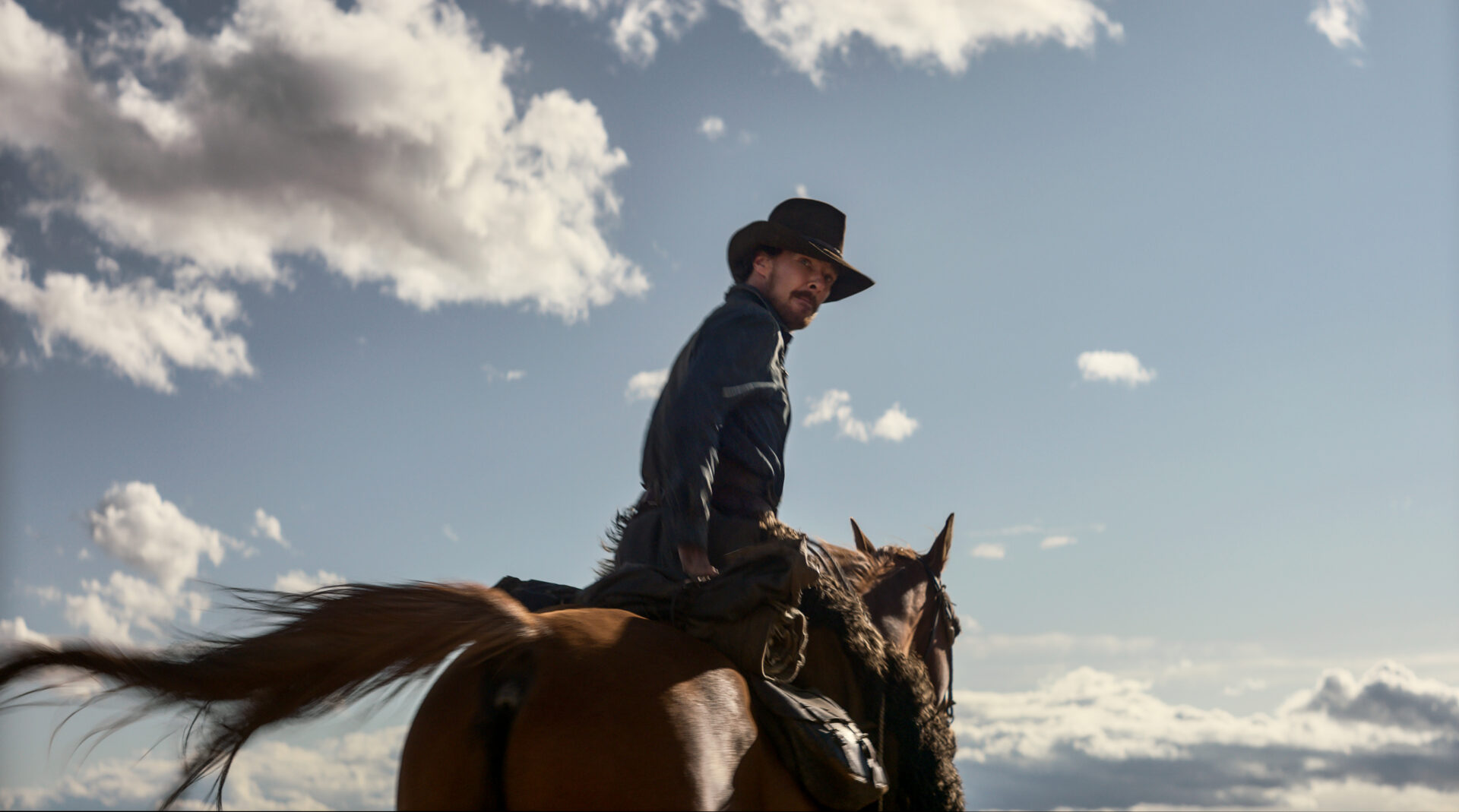
THE POWER OF THE DOG BENEDICT CUMBERBATCH as PHIL BURBANK in THE POWER OF THE DOG. Cr. KIRSTY GRIFFIN/NETFLIX © 2021 Cross City Films Limited/Courtesy of Netflix
At the end of February, Elliott appeared on Marc Maron’s podcast WTF with Marc Maron, where he discussed The Power of the Dog explaining why he didn’t like the movie saying, “I’ll tell you why. I didn’t like it anyway. I looked at it when I was down there in Texas doing 1883. And what really brought it home to me, the other day, when I said to you I want to f***ing talk about it. There was a f***ing full page ad out in The LA Times and there was a review, not a review, a clip, and it talked about the evisceration of the American myth.”
“And I thought, ‘What the f***? What the f***?’ This is the guy that’s done westerns for ever,” he elaborated. “The evisceration of the American west. They made it look like — what are all those dancers, those guys in New York that wear bowties and not much else? Remember them from back in the day?”
Maron answers, “Oh, the Chippendales.”
Elliot then says, “Yeah, that’s what all these f***ing cowboys in that movie looked like. They’re all running around in chaps and no shirts. There’s all these allusions to homosexuality throughout the f***ing movie.”
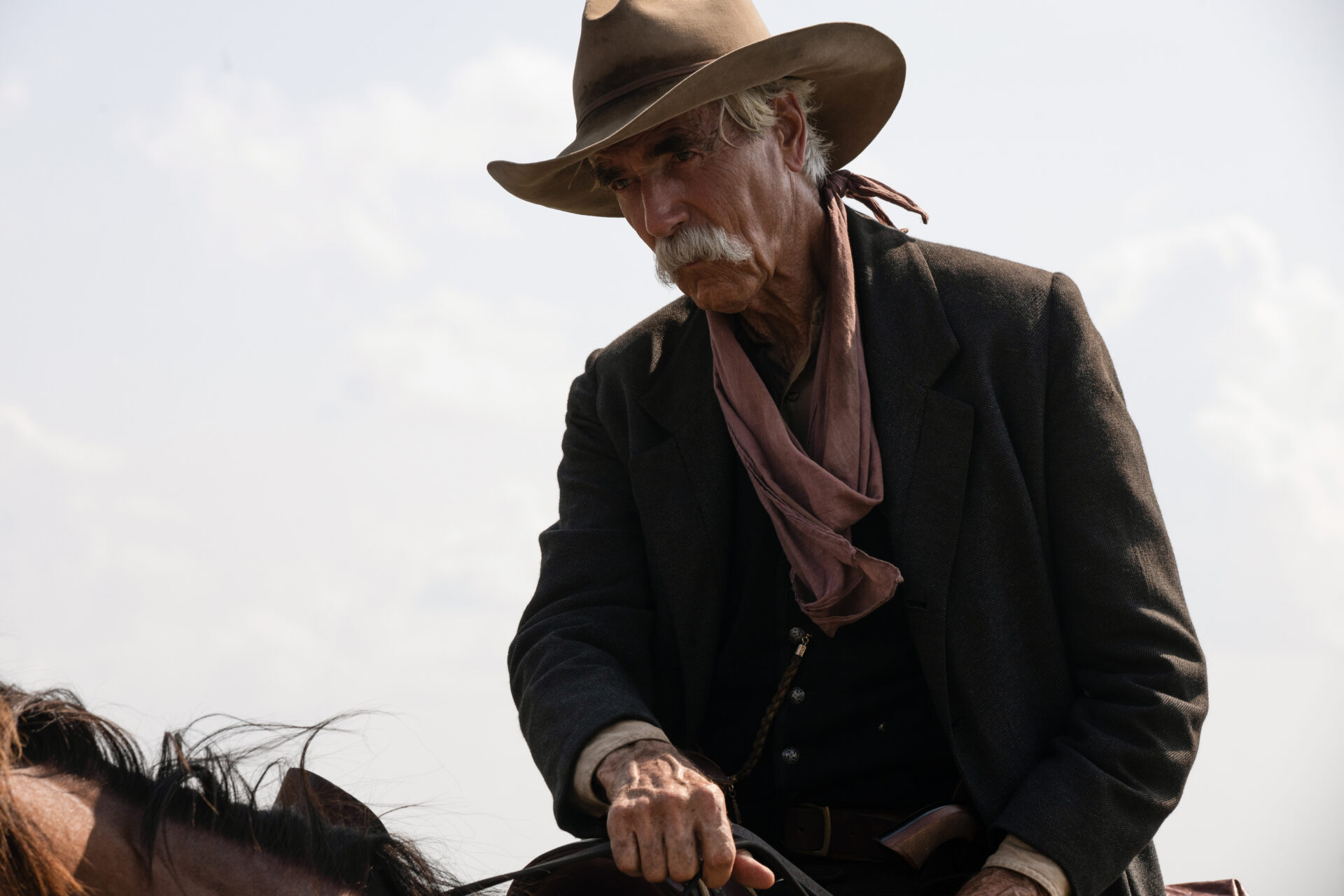
Pictured: Sam Elliot as Shea of the Paramount+ original series 1883. Photo Cr: Emerson Miller/Paramount+ © 2021 MTV Entertainment Studios. All Rights Reserved.
Maron responds, “I think that’s what the movie’s about.”
Elliot then states, “Well, what the f*** does this woman…”
Maron then interjects, “Who? Jane Campion?” (Campion is the director of The Power of the Dog).
Elliot continues, “Yeah. She’s a brilliant director by the way. I love her work — previous work. But what the f*** does this woman from down there, New Zealand, know about the American West? And why in the f*** does she shoot this movie in New Zealand and call it Montana? And say this is the way it was. So that f***ing rubbed me the wrong way, pal.”
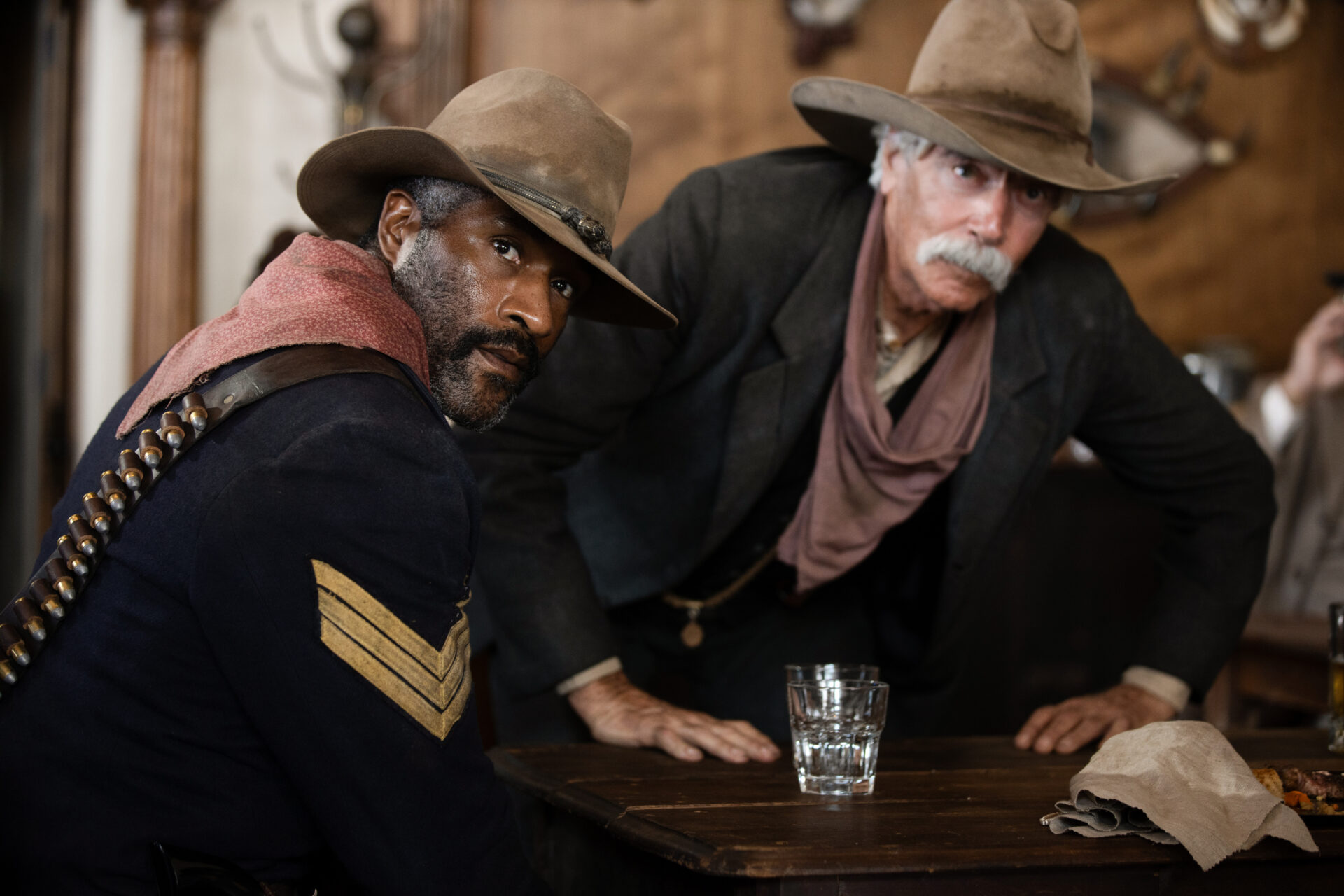
Pictured: LaMonica Garrett as Thomas and Sam Elliot as Shea of the Paramount+ original series 1883. Photo Cr: Emerson Miller/Paramount+ © 2021 MTV Entertainment Studios. All Rights Reserved.
Elliot then elaborated, “And the myth is that they were these macho men out there with the cattle. I just come from f***ing Texas where I was hanging out with families, not men, but families, big, long, extended, multiple generation families that made their living and their lives were all about being cowboys. And boy when I f***ing saw that I thought, ‘What the f***? Where are we in this world today?”
Maron then stated, “I don’t know that’s the biggest issue at hand.”
Elliott countered, “No, it’s not the biggest issue at hand, but, for me it was the only issue because there was so much of it.”
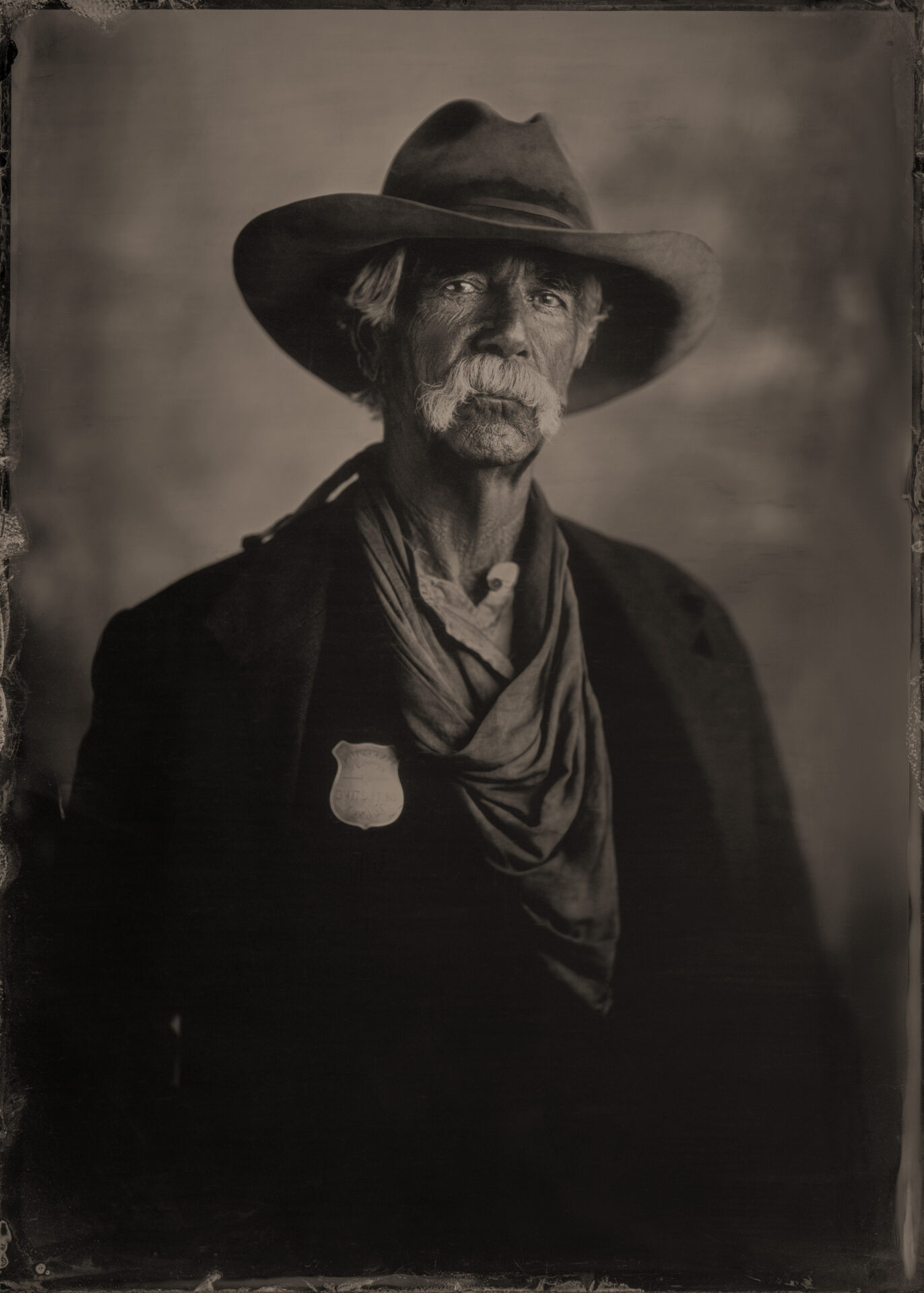
Pictured: Sam Elliot as Shea in 1883 streaming on Paramount +. Photo Credit: Sarah Coulter/Paramount + ©2021 CBS Interactive, Inc. All Rights Reserved.
“I mean Cumberbatch never got out of his f***ing chaps. He had two pair of chaps, a wooly pair and a leather pair,” he explained.
Elliott then added, “And every f***ing time he’d walk in from somewhere. I don’t know where in the f*** — he was never on a horse, maybe once — he’d walk into the f***ing house, storm up the f***ing stairs, go lay on his bed in his chaps, and play his banjo.”
He concluded, “I was like, ‘What the f***? What the f***? Where’s the western in this western?”
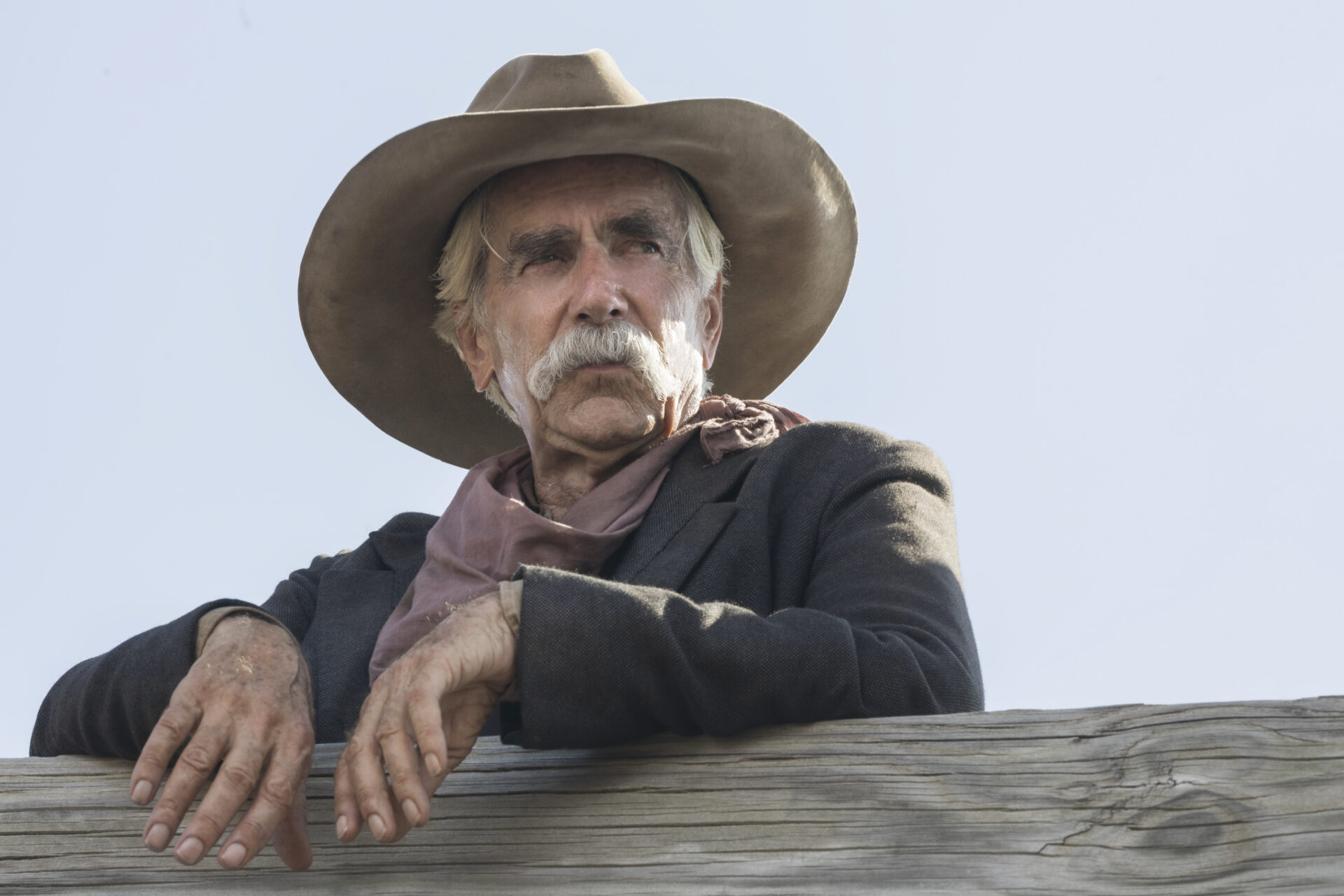
Pictured: Sam Elliot as Shea of the Paramount+ original series 1883. Photo Cr: Emerson Miller/Paramount+ © 2021 MTV Entertainment Studios. All Rights Reserved.
RELATED: Avengers: Infinity War Star Benedict Cumberbatch Rescues Cyclist From Group of Muggers!
Cumberbatch responded to this criticism in a recent interview after being nominated for Best Leading Actor for his role in The Power of the Dog with the British Academy of Film and Television Arts (BAFTA).
Responding to a question about why it’s important to portray his The Power of the Dog character, Phil Burbank, in the 21st century, Cumberbatch responded, “Because there are many of him still in the world.”
He continued, “And I think if we’re to teach our sons to be feminist, if we’re to teach equality, if we’re to understand what poisons the well in men, what creates toxic masculinity, we need to understand and look under the hood of characters like Phil Burbank to see what their struggle is, and why that’s there in the first place because otherwise it will just keep repeating itself.”
“And while we’re thankfully moving into a space now where survivors are being heard and supported and protected — we’ve got a way to go on that still, don’t get me wrong, but I think we also have to look at the root cause of the behavior that these people have suffered from,” he went on.
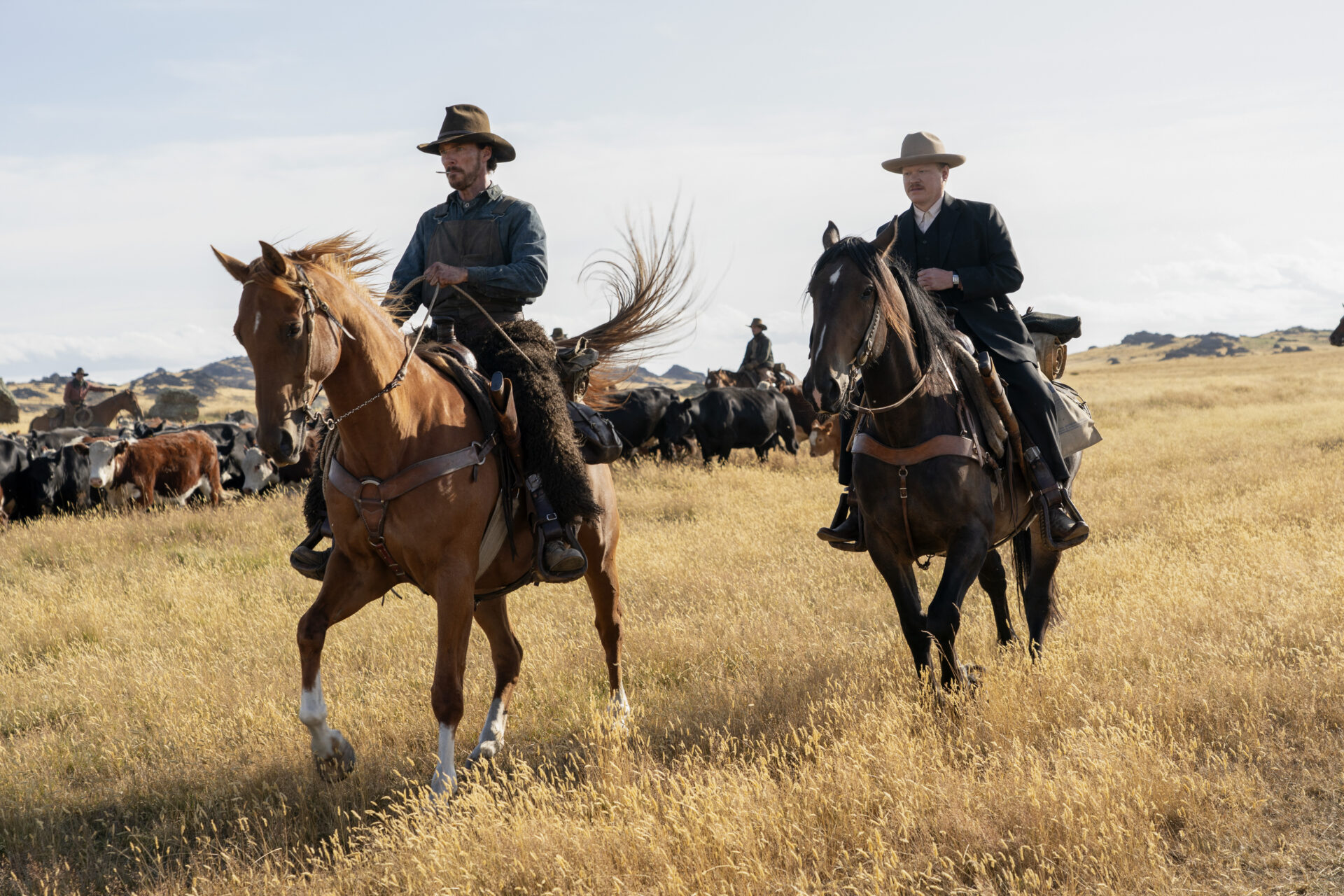
THE POWER OF THE DOG (L to R): BENEDICT CUMBERBATCH as PHIL BURBANK, JESSE PLEMONS as GEORGE BURBANK in THE POWER OF THE DOG. Cr. KIRSTY GRIFFIN/NETFLIX © 2021
Cumberbatch then specifically addressed Sam Elliott, “And this man — trying very hard not to say anything about a very odd reaction that happened the other day on a radio podcast over here without meaning to sort of stare over the ashes of that — I won’t get into the details of it if it’s hit the news at home it has. It has here.”
“But someone really took offense to — I haven’t heard it so it’s unfair really for me to comment in detail on it — but really took offense to the west being portrayed in this way,” he said.
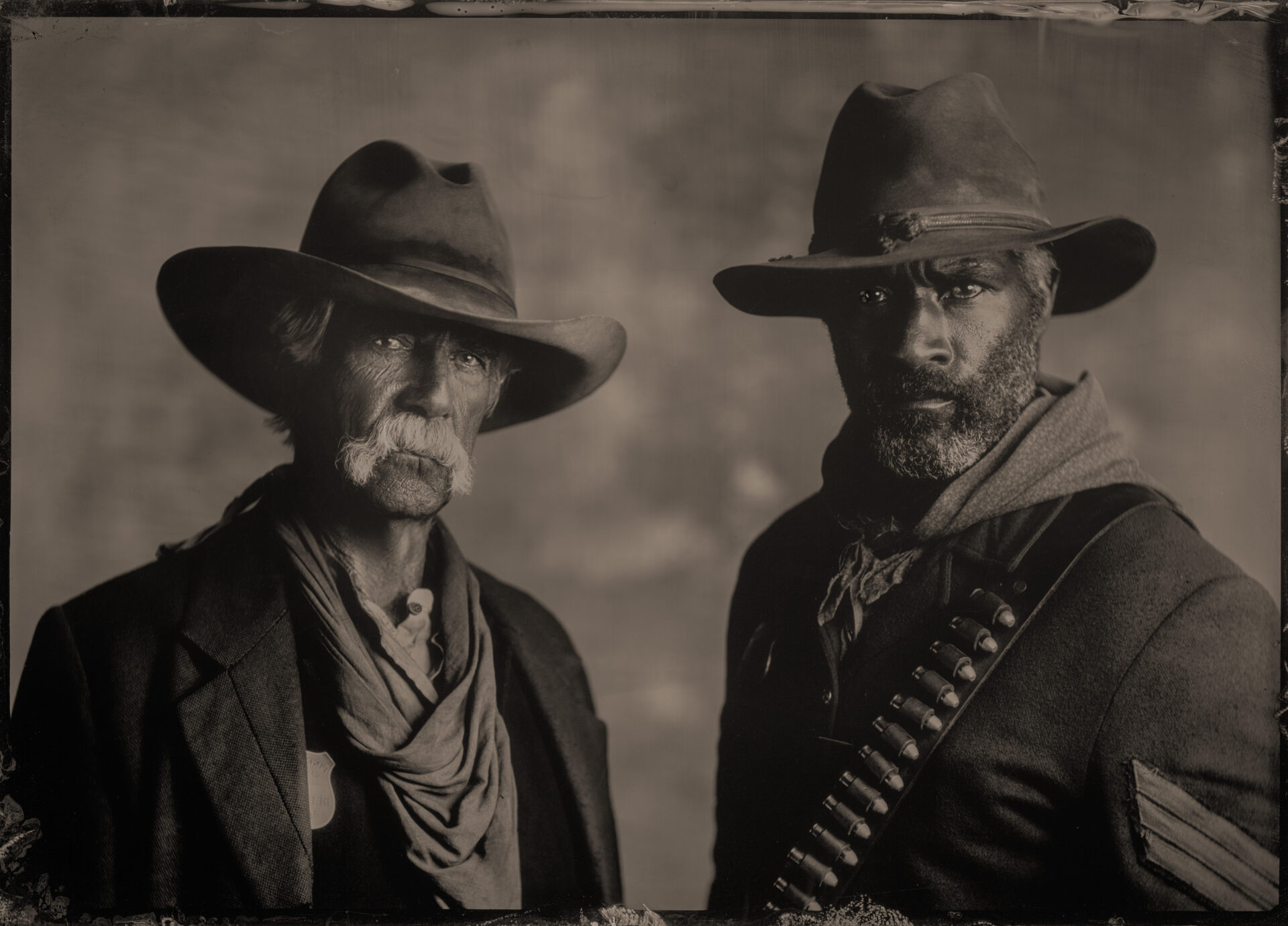
Pictured: Sam Elliot as Shea and LaMonica Garrett as Thomas in 1883 streaming on Paramount +. Photo Credit: Sarah Coulter/Paramount + ©2021 CBS Interactive, Inc. All Rights Reserved.
“And beyond that reaction, that sort of denial that anybody could have any other than a heteronormative existence because of what they do for a living or where they’re born, there’s also a massive intolerance within the world at large towards homosexuality still,” he claimed. “Towards an acceptance of the other, of any kind of difference.”
“And no more so, I guess, in this prism of conformity in the sense of what is expected of a man in the sort of the western archetype mold of masculinity. And so, I think, to deconstruct that through Phil, to look at that. It’s not a history lesson,” he continued.
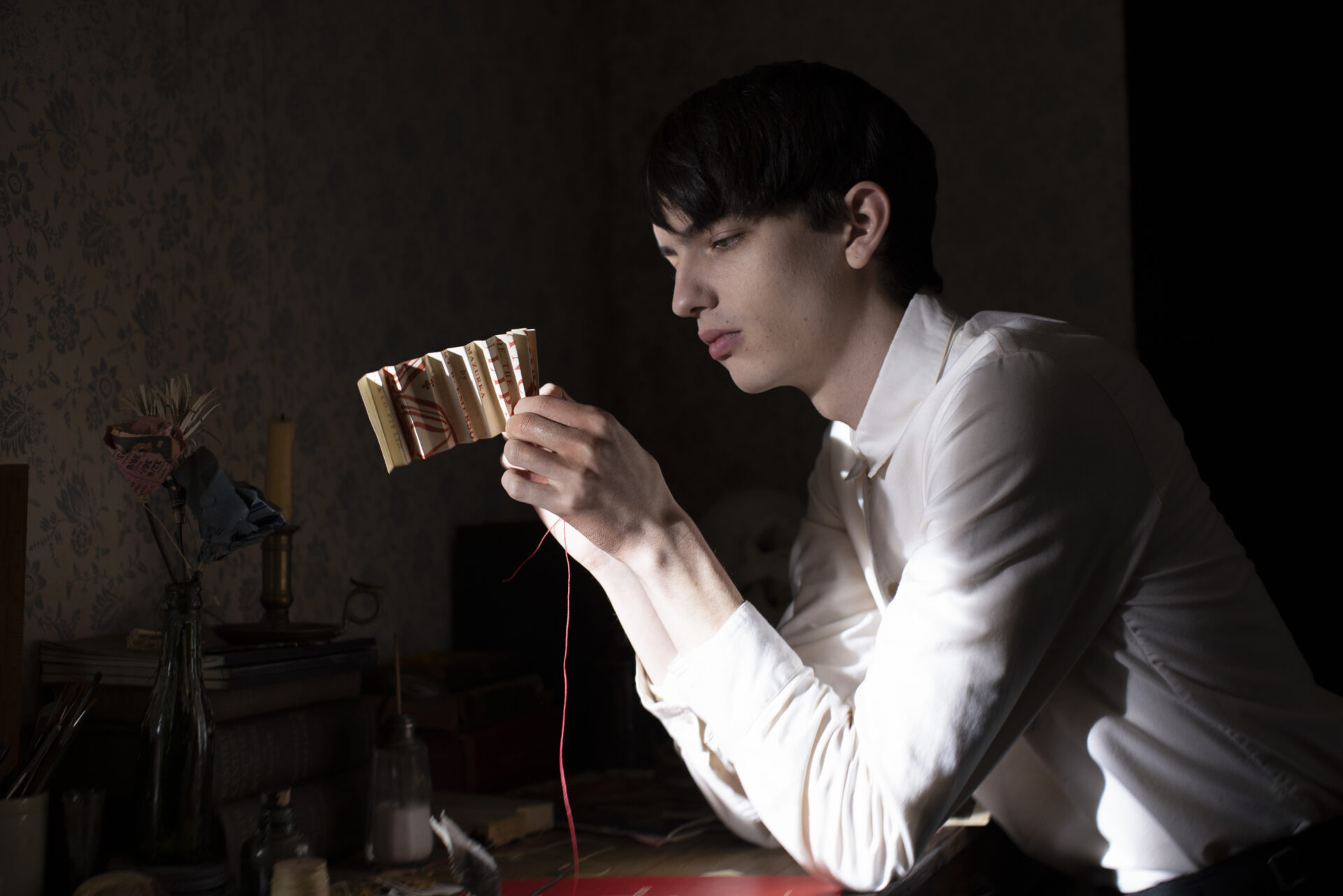
THE POWER OF THE DOG: KODI SMIT-McPHEE as PETER in THE POWER OF THE DOG. Cr. KIRSTY GRIFFIN/NETFLIX © 2021
Cumberbatch then brings up Russia and President Donald Trump, “And I mean, need we look much further than what is going on in Russia at the moment to understand that somewhere in the mind-boggling idiocy of that man’s megalomania is some damage. There’s some damage there. And we saw it in a president of the country that’s hosting me at the moment.”
“These people still exist in our world. And whether it’s on our doorstep, or whether it’s down the road, or whether it’s someone we meet in a bar or a pub, or in a sport on the sports field, there is aggression, and anger, and frustration, and an inability to control or know who you are in that moment that causes damage to that person and as we know far more openly now, as I was saying, damage to others around them,” Cumberbatch elaborated.
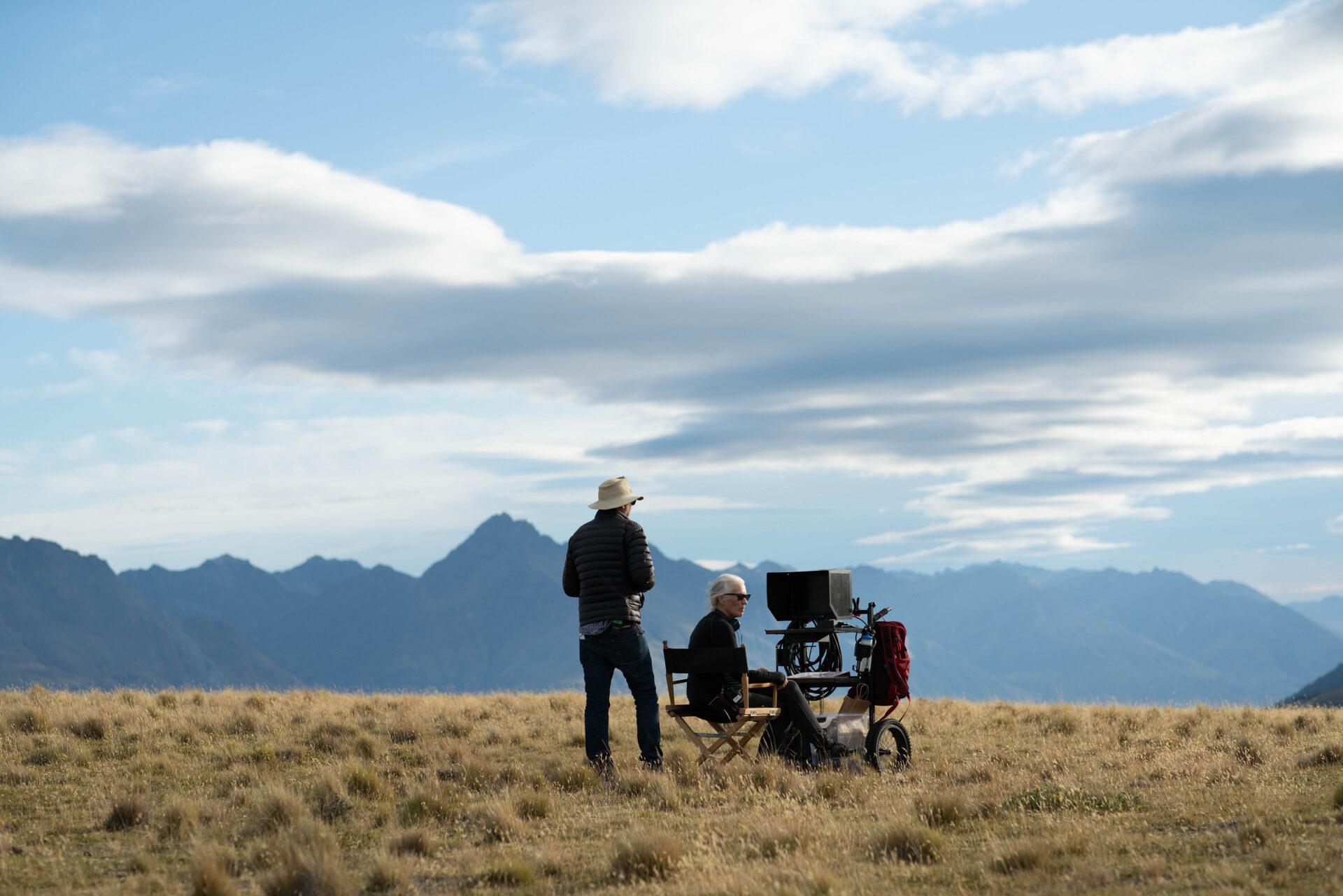
THE POWER OF THE DOG (L to R): PHIL JONES (ASSOCIATE PRODUCER – 1ST ASSISTANT DIRECTOR), JANE CAMPION (DIRECTOR – PRODUCER – WRITER). Cr. KIRSTY GRIFFIN/NETFLIX © 2021
The actor then asserted, “I think there’s no harm in looking at a character to try and get to the root causes of that. I mean this is a very specific case of repression, but also due to an intolerance, a societal intolerance for that true identity that Phil is, that Phil has, that he can’t fully be.”
“But I think the more we look under the hood of toxic masculinity and try to discover the root causes of it, the bigger the chances we have of dealing with it when it arises with our children in playgrounds at school, with our friends, and the behavioral patterns that we might see in innocent play, and just understand how to police that, how to teach something that includes their feelings and holds them in that emotional space so they can be what they are being in that moment, but not cause damage to themselves or others,” he opined.
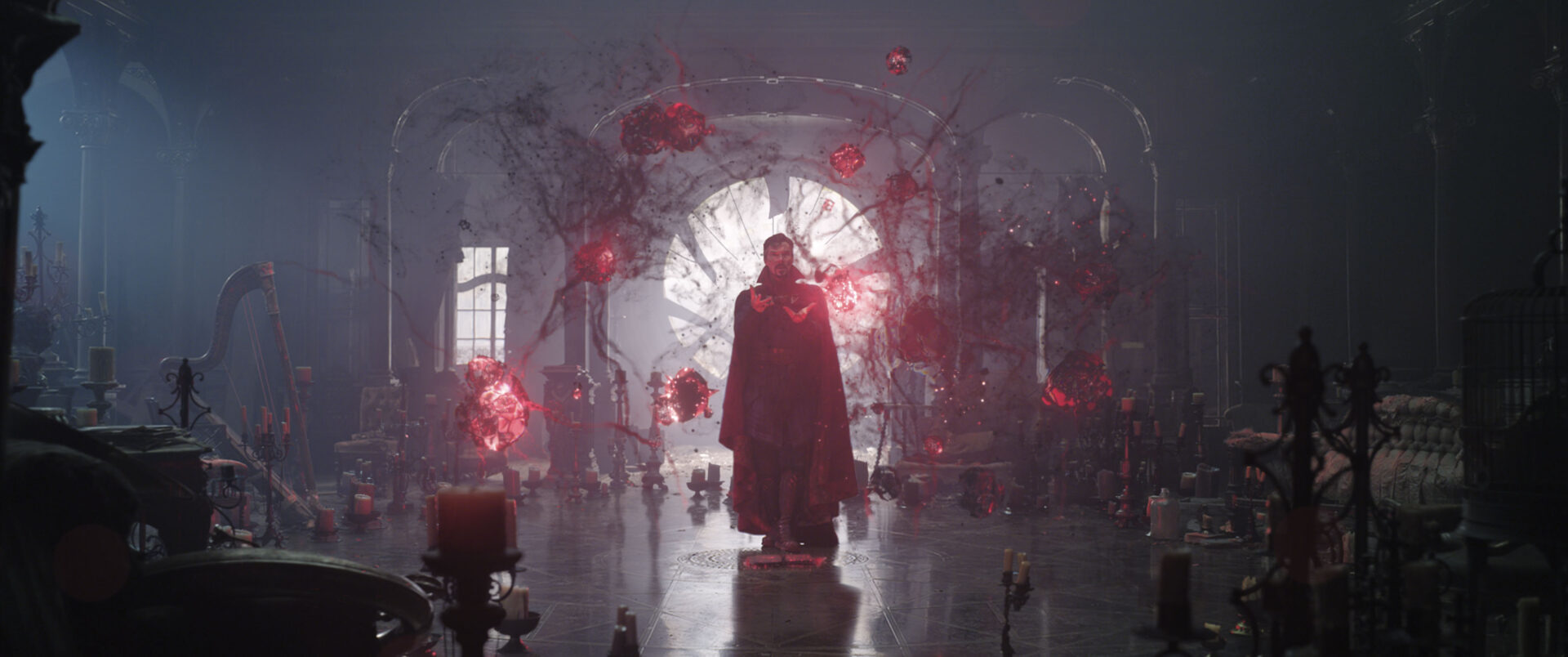
Benedict Cumberbatch as Dr. Stephen Strange in Marvel Studios’ DOCTOR STRANGE IN THE MULTIVERSE OF MADNESS. Photo courtesy of Marvel Studios. ©Marvel Studios 2022. All Rights Reserved.
When asked if it as simple as talking, Cumberbatch responded, “It’s very easy to talk in a webinar about films and with like-minded artistic folk, it’s much harder to go up to the guy at the bar, who wants to glass you and go, ‘Hey, look, I’m really sorry things haven’t worked out for you.’ It’s very hard to know how to mediate it within real life.”
“I think that’s one of the great things we get to do as storytellers in culture is to be able to siphon it into metaphor to sort of let the light peek through the crack a little bit and just hopefully it might touch someone or ignite a conversation about it that might reach someone like that,” he said.
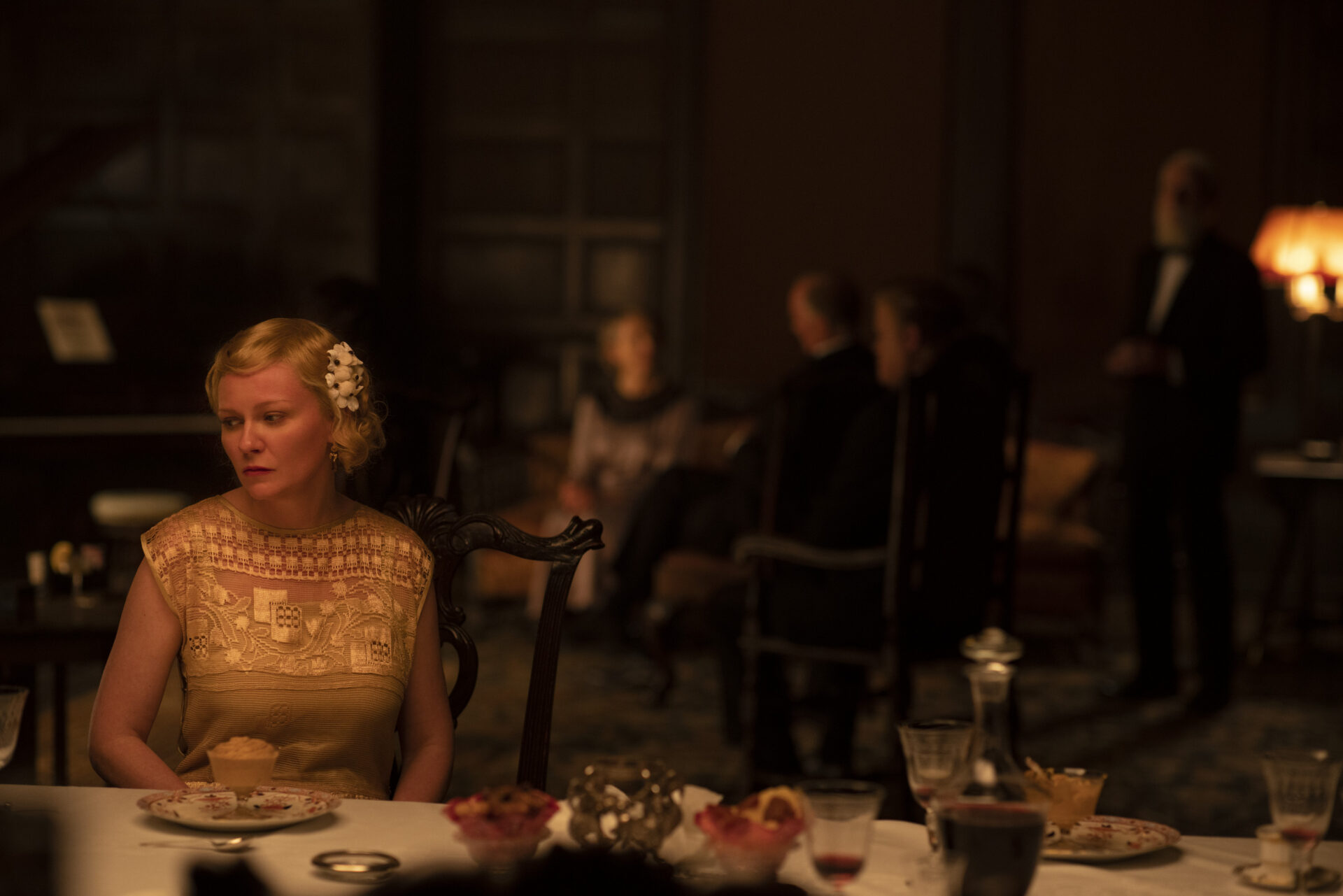
THE POWER OF THE DOG : KIRSTEN DUNST as ROSE GORDON in THE POWER OF THE DOG. Cr. KIRSTY GRIFFIN/NETFLIX © 2021
Cumberbatch then elaborated, “It’s much harder to go out and kind of billboard that as a problem because, of course, the massive aggression and defensiveness you will meet with that as well as the fist, or the weapon, or whatever it might be. It doesn’t necessarily find a good space and a time to be aired in every day life.”
“And I think that’s why art and storytelling of any kind whether it’s a song lyric, or someone speaking of their own experience, a lived experience, or whether it’s a piece of art, or poetry, or film could sometimes do that,” he claims.
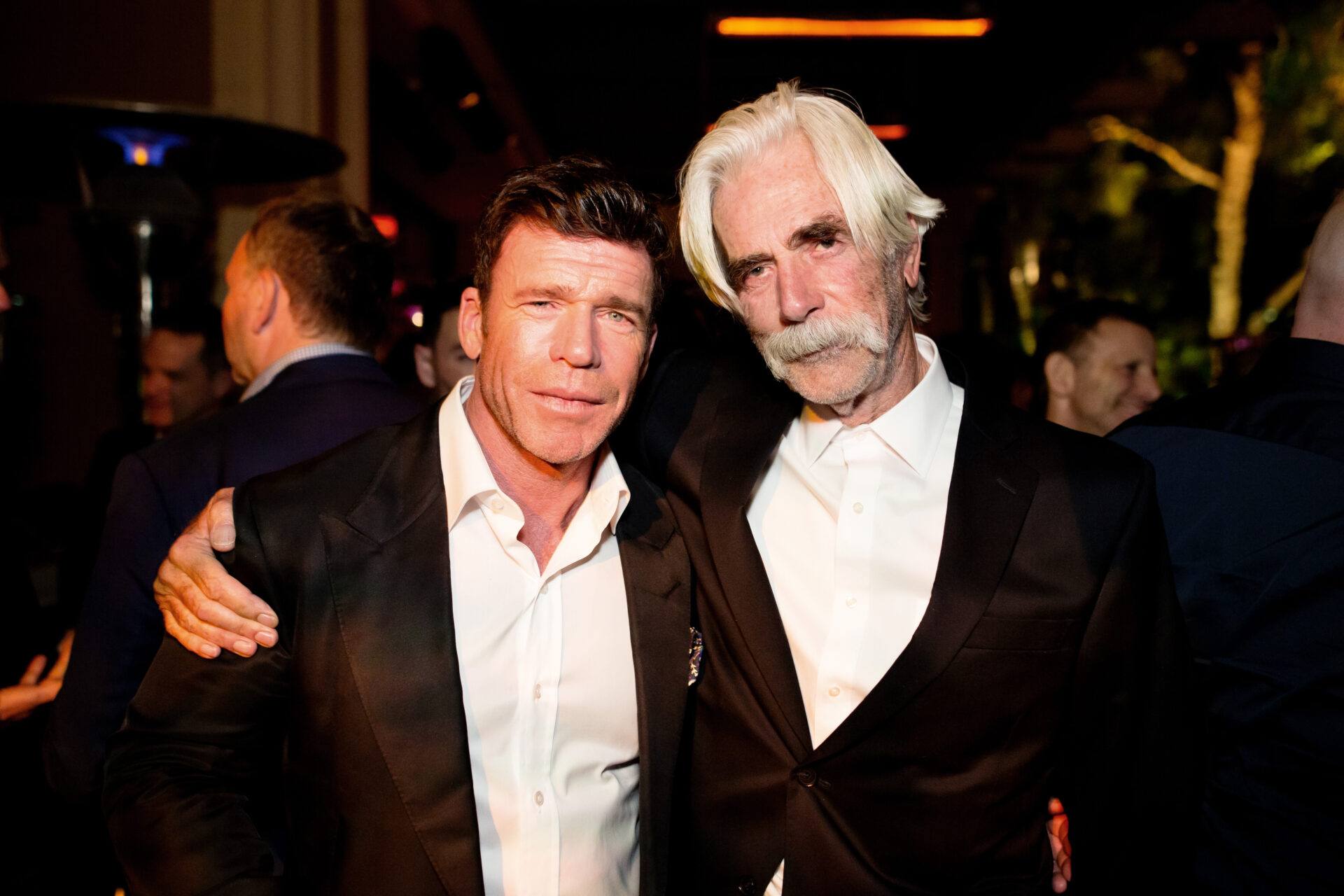
LAS VEGAS, NEVADA – DECEMBER 11: (L-R) Taylor Sheridan and Sam Elliott attend Paramount+ and 101 Studios world premiere of “1883” at Wynn Las Vegas on December 11, 2021 in Las Vegas, Nevada. (Photo by Greg Doherty/Getty Images for Wynn Las Vegas)
He reiterated, “I really do believe that. Again, without sounding too pretentious, I just think that is one of the things that art categorically is socially, societally incredibly important for at every level, at every level.”
“And that’s why I think I’m supposedly very passionate about it, being something that’s introduced to kids at school and that’s funded properly and that something that it’s part of the growing experience for these kind of messages and ways of examining problems to happen in a safe way, in a metaphor or parable,” he concluded.
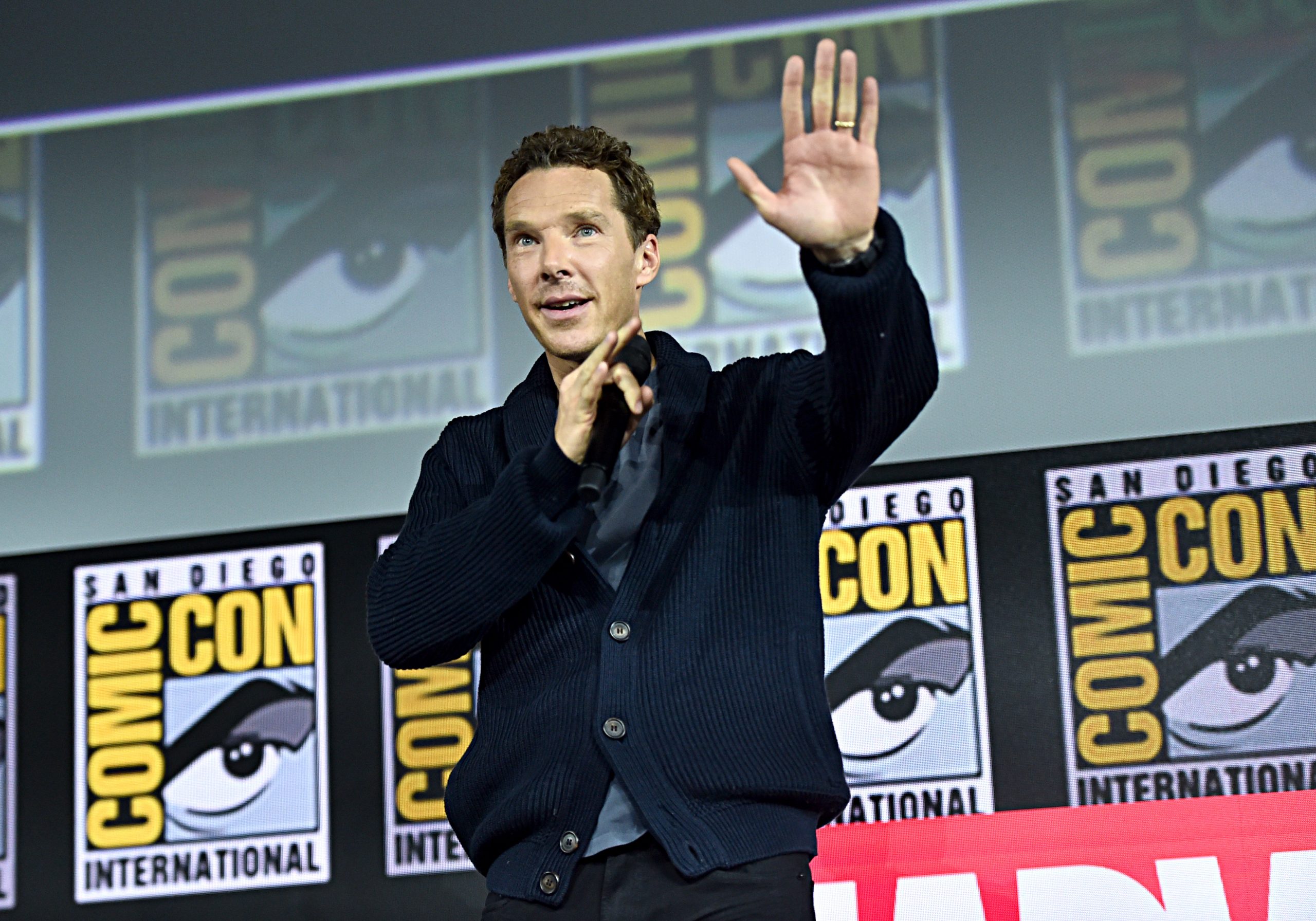
SAN DIEGO, CALIFORNIA – JULY 20: Benedict Cumberbatch of Marvel Studios’ ‘Doctor Strange in the Multiverse of Madness’ at the San Diego Comic-Con International 2019 Marvel Studios Panel in Hall H on July 20, 2019 in San Diego, California. (Photo by Alberto E. Rodriguez/Getty Images for Disney)
What do you make of Cumberbatch’s response to Sam Elliott and his comments about the importance of playing a character like Phil Burbank?
NEXT: Benedict Cumberbatch Claims In New Interview He Thought Doctor Strange Was “Dated, Sexist Character”
